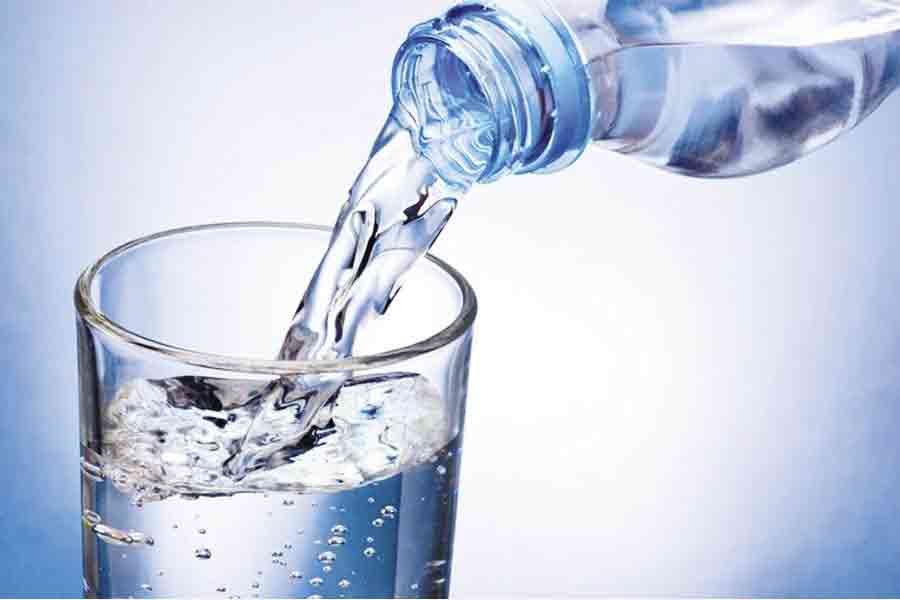
Published :
Updated :

Water, like air, is a natural heritage of every man. Treating it as a profit-making commodity is morally wrong, akin to charging people for the air they breathe in. Regrettably, in Bangladesh, drinkable water - the very essence of life - is becoming increasingly unaffordable due to the authorities' failure to protect this vital resource from profit-driven exploitation. On the one hand, public reliance on bottled drinking water is steadily increasing due to limited access to safe, potable water and the questionable quality of water supplied by the WASA. On the other hand, there is a mushroom growth of commercial ventures offering 'safe' drinking water at increasingly higher prices. Thus the ordinary citizens are left with little choice but to pay for what should be a basic necessity. The failure to check the unbridled price hike by holding the profiteers accountable raises serious concern.
The bottled water companies were already raking in hefty profits, as an investigation by the Bangladesh Competition Commission (BCC) revealed in 2023. In fact, the BCC filed a case against seven leading bottled water companies for colluding to collectively set unreasonably high prices, a clear violation of the Competition Act of 2012. The case is still awaiting a hearing. Reportedly, the hearing is being delayed for dubious reasons. Despite this pending legal action, these companies have mindlessly increased prices yet again, citing the flimsy reason of volatile dollar market and increase in the price of raw materials. It shows the companies' blatant disregard for regulatory efforts to hold them accountable and their profit-making tendency over public well-being.
In 2022, when the prices of bottled water were raised citing the same reason, the BCC launched an investigation and found that some of the companies' profit margins increased by as many as 400 per cent in the same year. The business has become so much profitable that the companies can afford giving retailers a commission of Tk 9.0 against the sale of each bottle of half liter water for Tk 20. But the consumers are shown no mercy.
Meanwhile, the city dwellers are doubly fleeced considering that they have been paying water tax and this tax is being raised every year. Water tariff has been increased 14 times in the past 13 years. Yet, the city dwellers cannot drink the WASA supplied water, and they have to spend extra money boiling it to make it potable or purchasing a water purifier, bottled water, or jar water. In few cities of the world does a separate body for water supply exist and this is part of municipal services. But despite the ever-rising water rate WASA did almost nothing to win the confidence of city-dwellers by supplying safe drinking water. Its underground pipeline is said to be old and decaying. Then why has nothing been done all these years? Why are the people burdened with an additional expenditure on account of drinking water? Instead, the WASA too has started supplying bottled water, in line with the other commercial companies. If the WASA too becomes a bottled water supplier and makes monetary gains from it, what interest will the body have in performing its primary duty of supplying safe drinking water? Therefore, both private companies and public entities like the WASA must be held accountable. Regulatory frameworks must be prioritised and strengthened to protect this basic human right for all.


 For all latest news, follow The Financial Express Google News channel.
For all latest news, follow The Financial Express Google News channel.